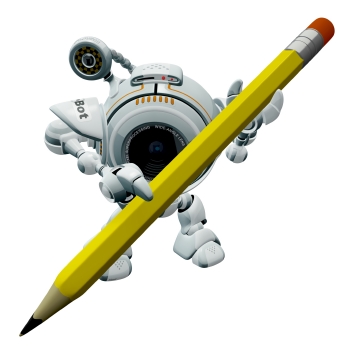Writing Words, Writing Codes and Artificial Intelligence?
 Have you ever tried your hand at writing professionally?
Have you ever tried your hand at writing professionally?
Over the past few months I have been working on a new project that is essentially a professional writing project [more on this next week]. As you can imagine the subject matter has something to do with code.
Writing about code turns out to be a much more involved process than I thought it would be. I am pretty used to writing computer code – one of the things I like about computer code is that if it doesn’t work it is obvious because the computer will happily crash.
This is the advantage of writing computer code – you get a real tight feedback loop and you can tell when you are right or wrong. Sure, it may not be simple to track every memory leak but at least you know that it is possible.
Writing words is a lot more forgiving, but it is a lot harder to know whether something is right or wrong. The question doesn’t always make sense – in writing things that may be wrong for one group can be just right for another.
Of course, we can sort of tell when things are written well or not. It is subjective, but it is amazing to me to think that the human brain (that a lot of people think of as a super-comptuer) can cope with the kind of ambiguous information typically gleamed from writing.
It is sort of funny in a lot of ways that the information processing theories of psychology seem so far off from the real world information process technologies of computers.
This makes me wonder if artificial intelligence (in a typical binary computer) is even possible at all.
Are there any computer science types out there who provide any insight into this question?
Please comment below!